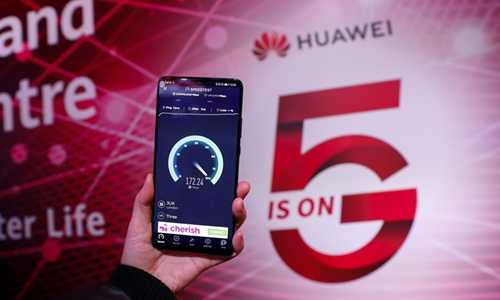China launches pilot scheme for the development of IPv6, a move that greatly reduces external risks: expert

IPv6 Photo: VCG
Twelve major departments and organizations jointly issued a notice on a pilot plan for the innovation and application of Internet Protocol Version 6 (IPv6) technology, a move that is expected to tackle bottlenecks and provide safer conditions for both domestic internet service providers and users.
Experts said that the guideline is a major milestone for China's internet service development since the extensive application of IPv6 technology can help increase China's initiative in internet security management and reduce external risks.
The joint notice released on Wednesday by China's Cyberspace Administration, the National Development and Reform Commission, the Ministry of Industry and Information Technology and other key ministries and organizations, clarifies that, by the end of 2023, the IPv6 technology innovation and converged application pilot will achieve significant results.
The scope of applications and scenarios will be further expanded. In the light of the notice, IPv6 applications in key areas such as the internet-of-things, industrial internet and smart homes will become more extensive. Additionally, the level of IPv6 convergence applications in government affairs, education, finance, radio and television, and water conservancy will be greatly improved.
One highlight of the pilot scheme is security, which is mentioned 11 times in the notice.
The notice addressed the needs to launch a safe system for the protection of the network and critical information infrastructure .
Since the biggest problem of IPv4 is the lack of network address resources, which has severely restricted the application and development of the Internet, the IPv6 will enable a great expansion of IP addresses by scaling it up, experts said.
China's digital economy accounted for 38.6 percent of GDP in 2020 and it is expected that by 2025, this proportion will exceed 50 percent. But issues like inadequate IP address and internet security have posed challenges to sustainable development.
"The allocation of IP addresses is severely uneven under the US guidelines," Xiang Ligang, Director-General of the Beijing-based Information Consumption Alliance, told the Global Time on Wednesday, noting that the insufficient IP addresses affect the development of the internet in China, which is why there is a growing need to use a new IPv6 technology for a development upgrade.
"The internet in China mainly uses dynamic IP address, which are not fixed, and what we want to pursue is that each device has a fixed IP address allowing it to be located," Xiang said. He also noted that "most of the root servers are located in the US, posing a great potential security risk and with the wide application of IPv6 technology we can effectively increase our initiative in Internet security management."

